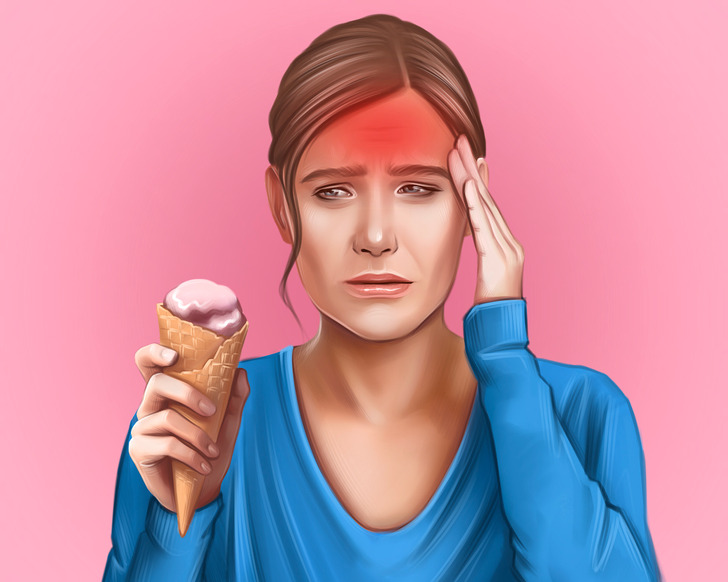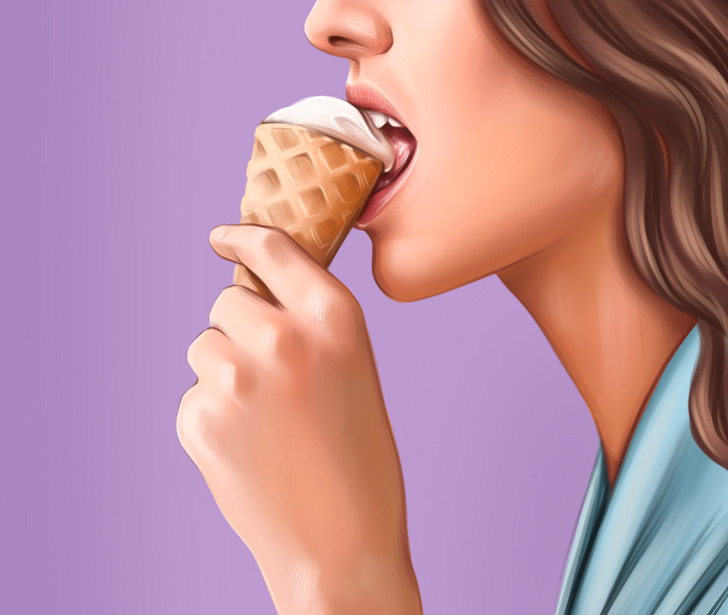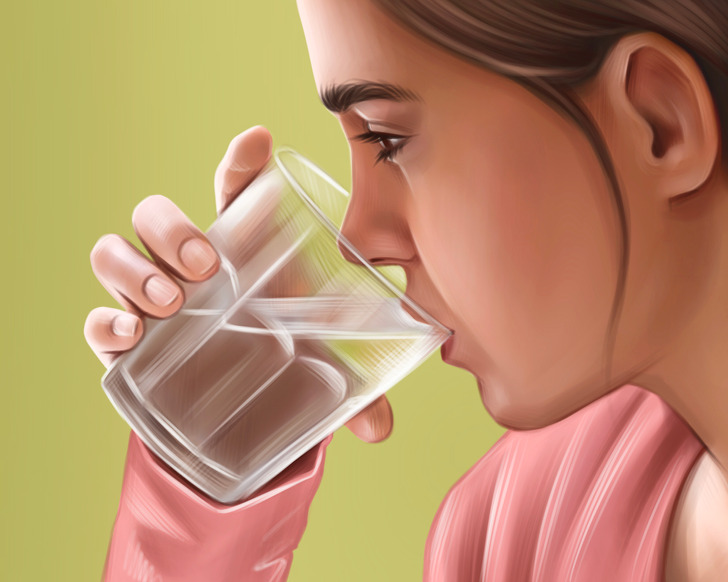Why Cold Food and Drinks Might Cause a Headache
You’ve probably experienced a sharp headache when eating your favorite ice cream or drinking an ice-cold drink. Fortunately, it goes away pretty fast. But it’s still interesting: What causes it and what is it called?
With 5-Minute Crafts, you’ll find out why cold food and drinks cause a headache.
What “brain freeze” is

If a person drinks or eats something very cold quickly, they might get a headache. The scientific term is sphenopalatine ganglioneuralgia, also known as “brain freeze.”
Ice cream headache usually appears in the forehead or the temples. It doesn’t last long, generally less than 5 minutes. The causes may be:
- cold air
- cold drinks
- frozen foods
- ice
- ice cream
Why cold food and drinks cause a headache

Experts believe that the pain when we eat something cold is connected with the following processes:
- Cold touches the roof or the back of the mouth and makes the blood vessels there constrict and dilate very quickly.
- This makes the pain receptors next to the blood vessels feel discomfort.
- They send the message to the trigeminal nerve, which forwards it to the brain.
- The brain feels that the cold stimulus originated in the head, not the mouth.
This way, ice cream headache is a referred pain. Such pain is caused in one part of the body due to the processes happening in another. So, when we eat or drink something cold, the muscles in the roof of the mouth feel discomfort, but we sense it in the head.
How to help yourself when you get “brain freeze”

If you experience brain freeze, follow these recommendations:
- Try to remove the cold drinks or food from the mouth.
- Press your tongue or thumb against the roof of your mouth to warm it up.
- Cover the mouth and nose with your hands and breathe into your palms. This will increase the flow of hot air to the roof of the mouth.
- Drink some warm water.
Don’t take painkillers. In 98% of people, such headaches go away in less than 5 minutes. So, by the time the pill works, you will already have forgotten about the unpleasant sensation.
So, this is how to avoid a brain freeze:
- Consume cold food and drinks slowly.
- Bite off small pieces and take small sips.
- Heat a cold product in the mouth before swallowing it.
Is brain freeze dangerous
Brain freeze is quite a common phenomenon. It happens to around 30-40% of people who don’t usually suffer from headaches.
Experts believe that the symptoms of brain freeze are not dangerous nor a sign of illness. But they agree that it’s more common among people with migraines. Pain sensations from cold foods and drinks are sharper than during migraines. But fortunately, they go away quickly.